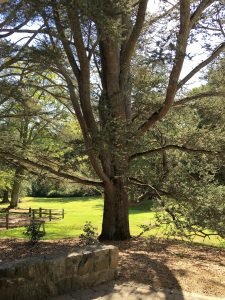2 Kings 2:1-14
The time had come for the Lord to take Elijah up to heaven in a whirlwind. Elijah and Elisha were traveling from Gilgal, and Elijah said to Elisha, “Stay here; the Lord is sending me on to Bethel.” But Elisha replied, “As the Lord lives and as you yourself live, I will not leave you.” So they went down to Bethel (2:1-2 CSB).
James described human life in this way, What is your life? You are a mist that appears for a little while and then vanishes (James 4:14b NIV). So it is with the best and the worst of people, small and great, rich and poor, unknown and well-known. We all appear on the stage of planet earth, make significant decisions and actions for which we give account, and yet which God also uses as he weaves the large tapestry of history for his glory. Then we reach the end of our lives, and keep that appointment which all of us must. Just as people are destined to die once, and after that to face judgment (Hebrews 9:27 NIV).
So it was with Elijah. He was born and suddenly appeared in the public life of Israel, announcing a drought on the land. Then God miraculously fed him at the brook and at the widow’s house. By God’s power Elijah raised the widow’s dead son to life. After three years of drought, he called Israel back to God at the contest on Mt. Carmel. The Lord heard his prayer for fire and later rain, and continued to use Elijah for many years to stand for the truth in a country that was religiously twisted and morally corrupt. Then it was time for Elijah to die….
No, it wasn’t! Though Elijah had once prayed to die, the Lord had a different end to Elijah’s stay on earth. Billions of people have inescapably marched into the jaws of death. Only two have escaped: Enoch and Elijah. When the Son of God returns in power and great glory, all his people who are alive at that time will also avoid death. For the Lord himself will descend from heaven with a cry of command, with the voice of an archangel, and with the sound of the trumpet of God. And the dead in Christ will rise first. Then we who are alive, who are left, will be caught up together with them in the clouds to meet the Lord in the air, and so we will always be with the Lord (1 Thessalonians 4:16-17 ESV). Come, Lord Jesus! But while we must remain, what are some lessons we can learn from the close of Elijah’s life on earth?
When the situation appears hopeless to us, the living, sovereign God is able to act. As Elijah looked at life from his limited perspective, it often seemed to him that little positive religious change was occurring. He said, “I’m the only one left”—after Obadiah had told him of one hundred other prophets (1 Kings 18:22). Elijah said, “I’m the only one left”—after he had experienced God’s answers to his prayers for fire and rain (1 Kings 19:10,14).
Yes, Elijah thought he was the only one left, but look what the Lord was doing!
- Elisha was appointed as Elijah’s successor, and he remained faithful to Elijah until the end. God provided Elijah with a friend in the ministry.
- Micaiah boldly stood up for the truth before Ahab (1 Kings 22:1-28). We might be unaware of their courageous stand, but God has a people for his glory.
- Elijah was able to start or assist in the ministry of at least two “schools” of prophets at Bethel and Jericho. To train others for ministry is an important task though not very dazzling.
Though it was not God’s time to destroy the altar for false worship at Bethel, he used Elijah to raise up a testimony against it. (The Lord had already announced that Josiah, a descendant of David would destroy it later in history, cf. 1 Kings 13:2. Why did the Lord wait? He acts mercifully to allow people an opportunity to repent.) Though during the time of Ahab, the cursed city of Jericho was rebuilt, God had men to speak for him in that place.
Let us avoid an “Elijah complex”, supposing, “I’m the only one left.” Or as more of us might think, “Our small church and a few small faithful sisters churches are the only ones left to stand for God.” We can waste a lot of precious time moaning over the terrible times we live in, or we can labor for the cause of God and truth with a bold faith.
Grace and peace, David

 Luke 17:31-37
Luke 17:31-37 Psalm 9:13-20
Psalm 9:13-20